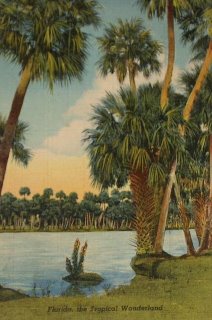 Not much energy today. Looking around on the internet, found some articles about old seeds - such as,
Not much energy today. Looking around on the internet, found some articles about old seeds - such as,The Judean Date Palm, sprouted from 2,000 year old seeds found at Herod's palace in Israel. The seeds must have been 'stored' at about the time of the trees' extinction, since they are said to have been extinct since about the year 1 CE. Since palms are either male or female, and only one seed sprouted, this once extinct variety might remain extinct (or might it hybridize with existing varieties to form a new variety, both ancient and new?). Apparently palms are usually not difficult to grow from seeds, although these ancient seeds required special methods and plant hormones to revive. I've been sticking date seeds in plants around the house. I don't know what I will do with them if they grow, since this is hardly the ideal climate.
The famous ancient Lotus seeds, Nelumbo nucifera, preserved in dried pond mud, about 1,228 years old (article here ). These apparently were cultivated in ancient times. The seeds were found near Xipaozi village, northeastern China. The dried pond mud helped preserve them, but also caused some genetic damage due to residual gamma radiation in the mud. However, the oldest viable lotus seeds, as verified by carbon dating, were "only" about 466 years old. Other lotus seeds, thought to be 2,000 years old, were germinated in the 1950's and are the parents for the Ohga lotus, still grown in Japan's Chiba Prefecture today.
An Argentinian canna, which was preserved due to its use in a toy. The seeds were somehow inserted into a green walnut, and the walnut hull grew around the canna seed, resulting in an impervious container. The purpose was to use as a rattle. This seed was about 530 years old (from about the year 1420).
Various South African seeds (legumes and Protea) were found in a Dutch merchant Jan Teerlink diaries from 1803, which had been stored in the British museum, and recently a few were germinated.
Botany professor Dr. William James Beal buried a number of seed varieties in jars, in 1879, in an experiment to see how long they would survive. A few Verbascum seeds made it 120 years, stored in moist, well aerated sand in East Lansing, Michigan. Presumable Dr. Beal is buried somewhere as well, but I doubt that he would germinate now.
Apparently, the ability of seeds to survive extended periods of time depends on a combination of traits of the plant, the ability to grow a hard shell (or, in the case of the canna, a hard shell and then be encased in a harder shell), storage conditions, especially dry, and the skills of the person trying to germinate them.
Of course, there are the ordinary garden vegetables. Tomato seeds can last 5-10 years. Onions, only 1 year.
(The photo above is from an antique postcard, found on webshots - they did not have photos of the Judean Palm, 2,000 years ago).

No comments:
Post a Comment
Note: Only a member of this blog may post a comment.